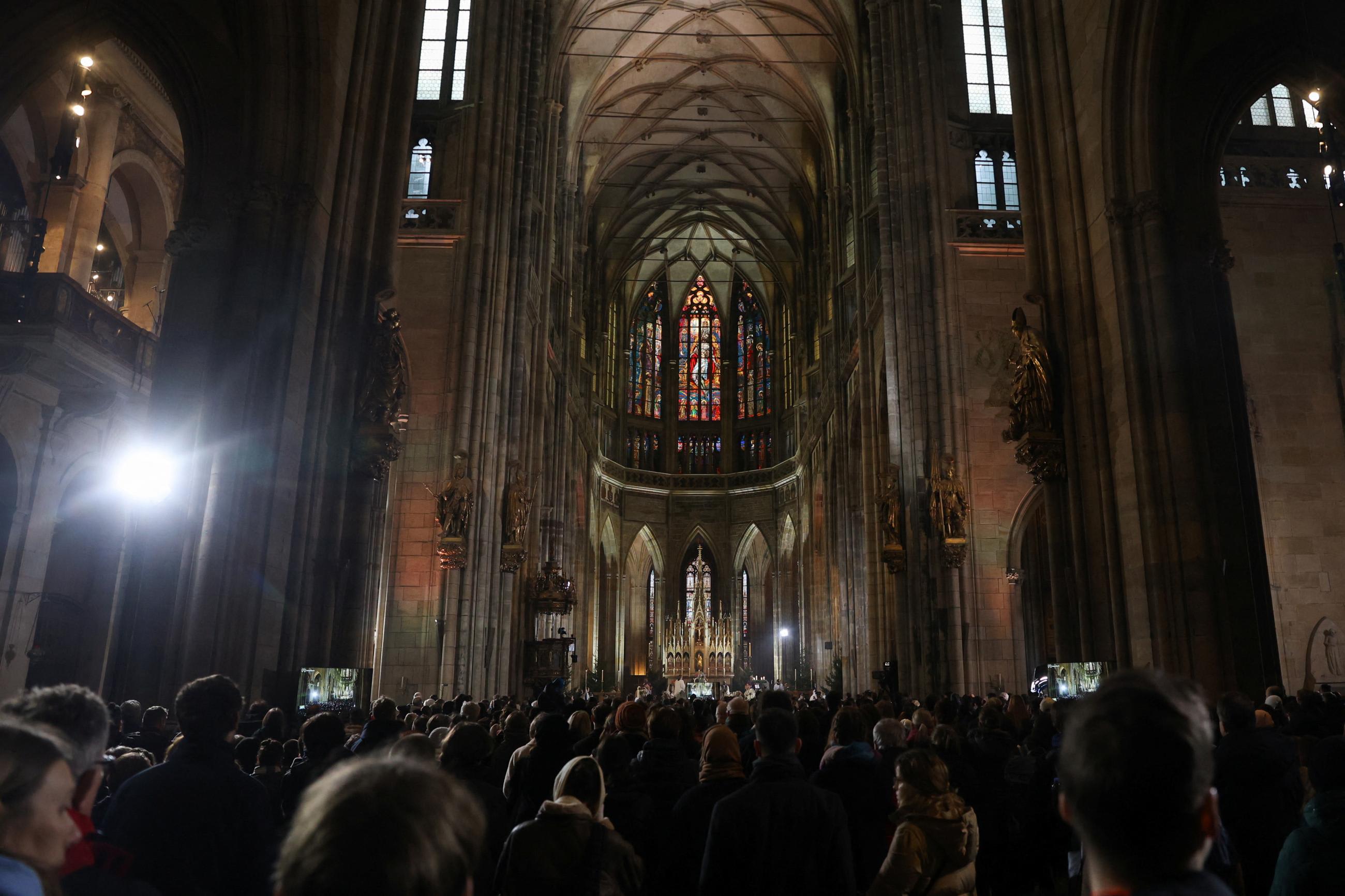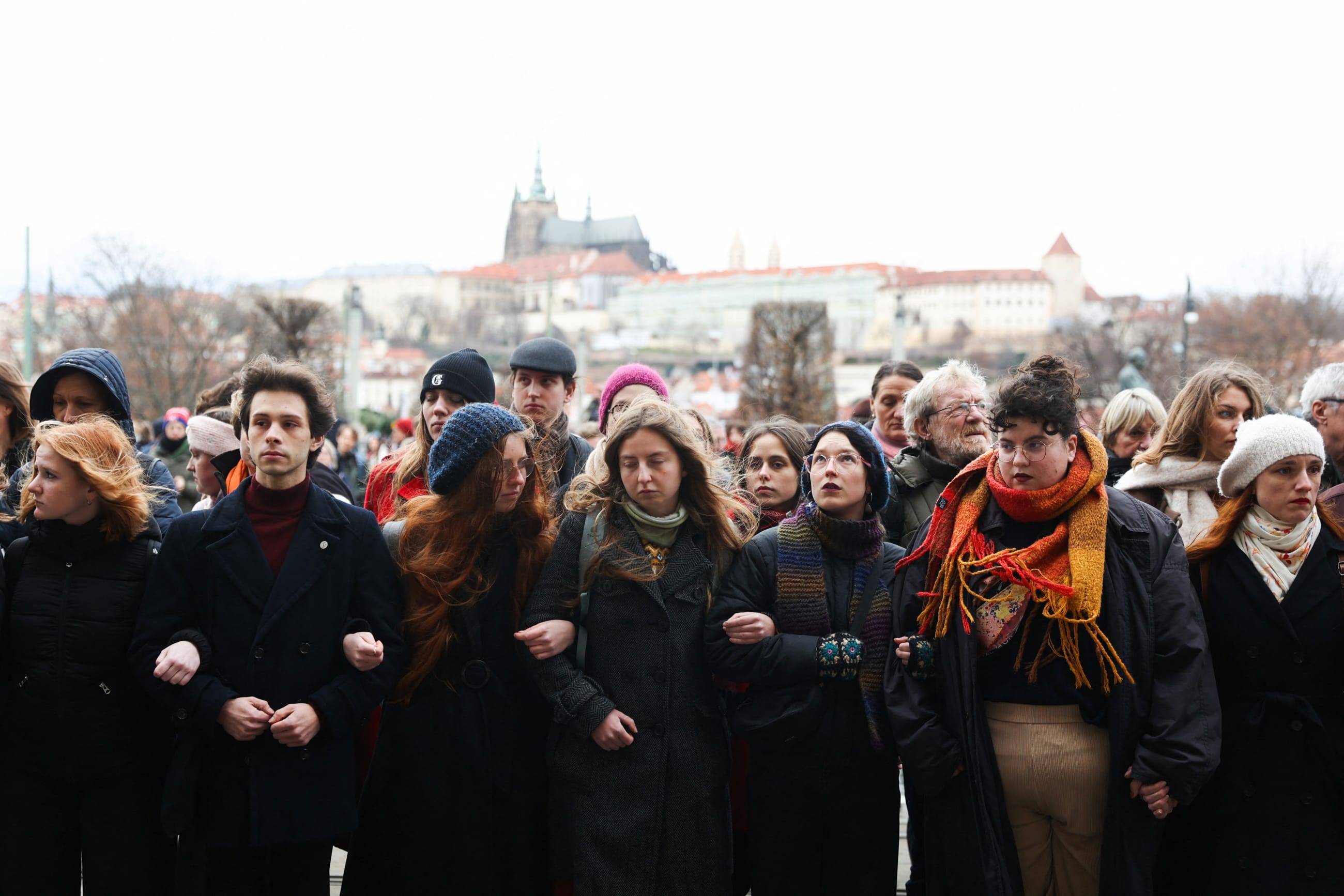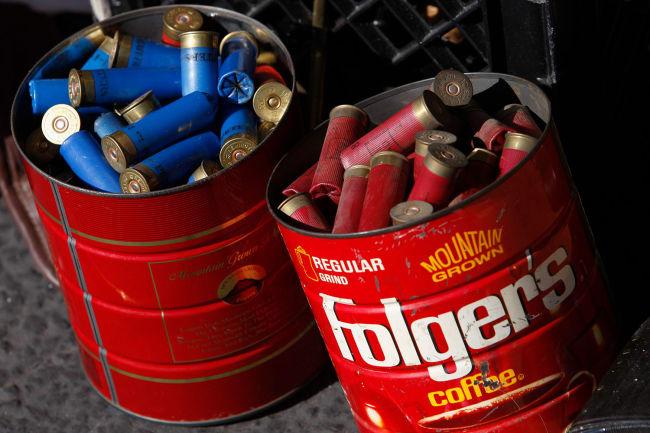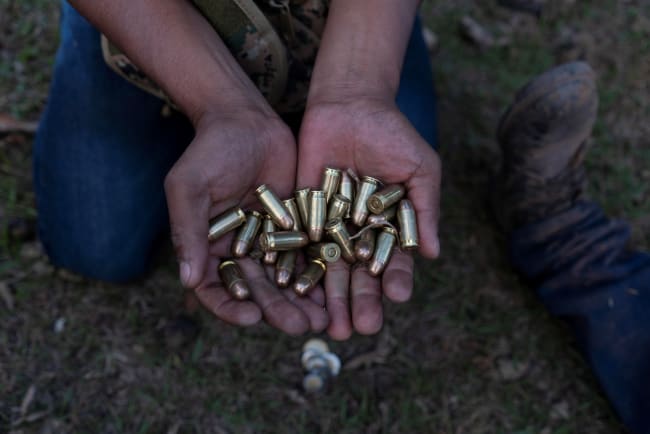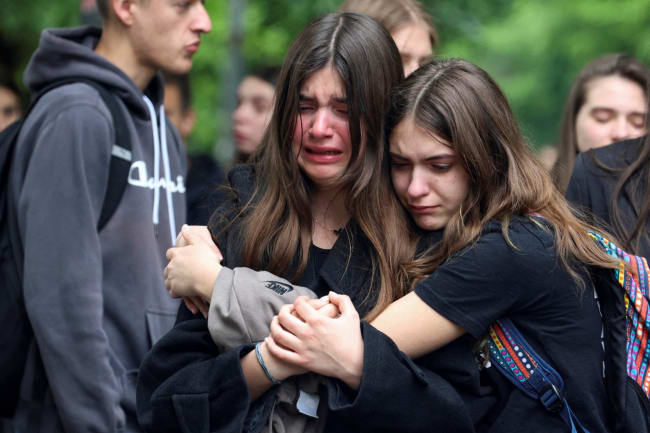Growing up in Prague, Czech Republic, mass shootings felt distant—a topic for the occasional foreign studies class in high school. So, when I woke on December 21, to the news of a shooting in my hometown, I was overcome by emotion—the moment felt surreal. My friends and family flooded my phone with messages and missed calls, asking whether my younger brother was okay and whether I knew anything about the incident.
The massacre has sent shockwaves throughout the Czech Republic, sparking a reassessment of attitudes toward gun ownership and calls for changes. Students directly affected by the shooting have proposed a near-universal gun ban. As a university student who shares those sentiments of distress and outrage, I understand their advocacy. Yet, given the entrenched beliefs surrounding the right to bear arms in the Czech Republic, such a measure is fraught with challenges.
The shooting, which occurred at Charles University's Faculty of Arts in central Prague, is considered "one of the deadliest assaults by a lone gunman in Europe this century." The gunman, who was identified as an award-winning history student at the university, opened fire on classmates, tragically claiming the lives of 14 individuals and leaving more than 20 wounded. The assailant had killed his father earlier the same day. Investigators also said that the shooter left a confession that he had days earlier killed an unrelated man and two-month-old daughter in nearby woods.
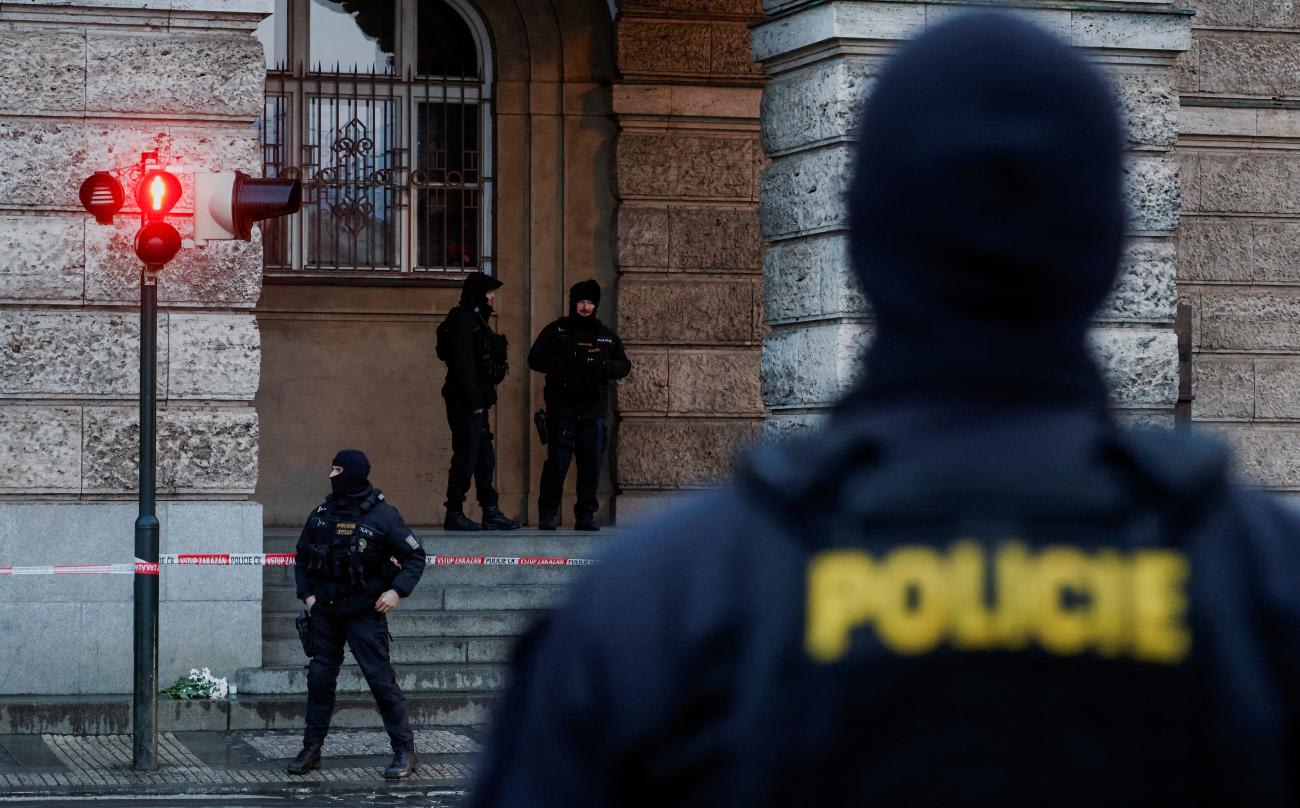
In response to the shooting, the Czech government declared December 23 a day of mourning in honor of the victims. Prague Mayor Bohuslav Svoboda explained, "We always thought that this was a thing that did not concern us. Now it turns out that, unfortunately, our world is also changing, and the problem of the individual shooter is emerging here as well."
Thousands of miles away as student in Boston, I found myself glued to my phone, attempting to grasp the reality of the situation. On social media, I was overwhelmed with videos of students leaping from building ledges attempting to get to safety and videos of courageous citizens shouting "shoot here" in frantic and desperate attempts to divert the gunman's attention from his intended targets. The tragedy felt inconceivable, as if another world had collided with the world I grew up in, leaving an unrecognizable mess in its wake. The world I was raised in, my home, felt like a protective bubble of safety and security—where the thought of a mass shooting occurring was unimaginable. Nevertheless, my world has now changed, and the security of my home has been stained by fear and unpredictability.
The security of my home has been stained by fear and unpredictability
I flew to Prague the next day and witnessed our community come together to mourn with vigils on the streets around the university. Residents covered the cobblestones with carefully plucked flowers and candles in a collective expression of grief. The amount of armed police patrol in public areas was striking. It was a sobering experience. I attended a Christmas market while officers roaming with machine guns remained in my line of sight. There was a constant sense of impending fear, uncertainty, and a realization of powerlessness in the face of someone else's actions. How can an individual enrolled in Prague's premier institute of education transition from being a high-achieving student who carried no criminal record to perpetrating one of the country's deadliest mass shootings?
The Czech Republic's Gun Laws
The Czech Republic's constitution recognizes the right to bear arms, evident in a 2021 constitutional amendment that specifically ensures the right of self-defense with a weapon. Guns are seen as a representation of individual freedoms, with one million legally declared firearms in the population of 10.7 million. The process of obtaining a weapon in the Czech Republic involves multiple steps, including a background check and a "professional competence examination."
The gun ban proposed by students at Charles University emphasizes that because of the serious nature of the mass shooting, possession of weapons, excluding armed security forces, should be unconditionally prohibited. Banning guns would address fears of copycat killers, stymie unregulated firearm access, and stop anyone—including exceptional students—from owning a gun.
Such change would take time. Czech Interior Minister Vít Rakušan highlighted the issue of gun regulation when speaking to reporters, explaining that no legislation can completely guarantee the prevention of attacks. Just as predicting whether an individual will commit a mass murder poses an incredibly difficult challenge, the creation of legislation that completely eradicates all gun violence is equally difficult.
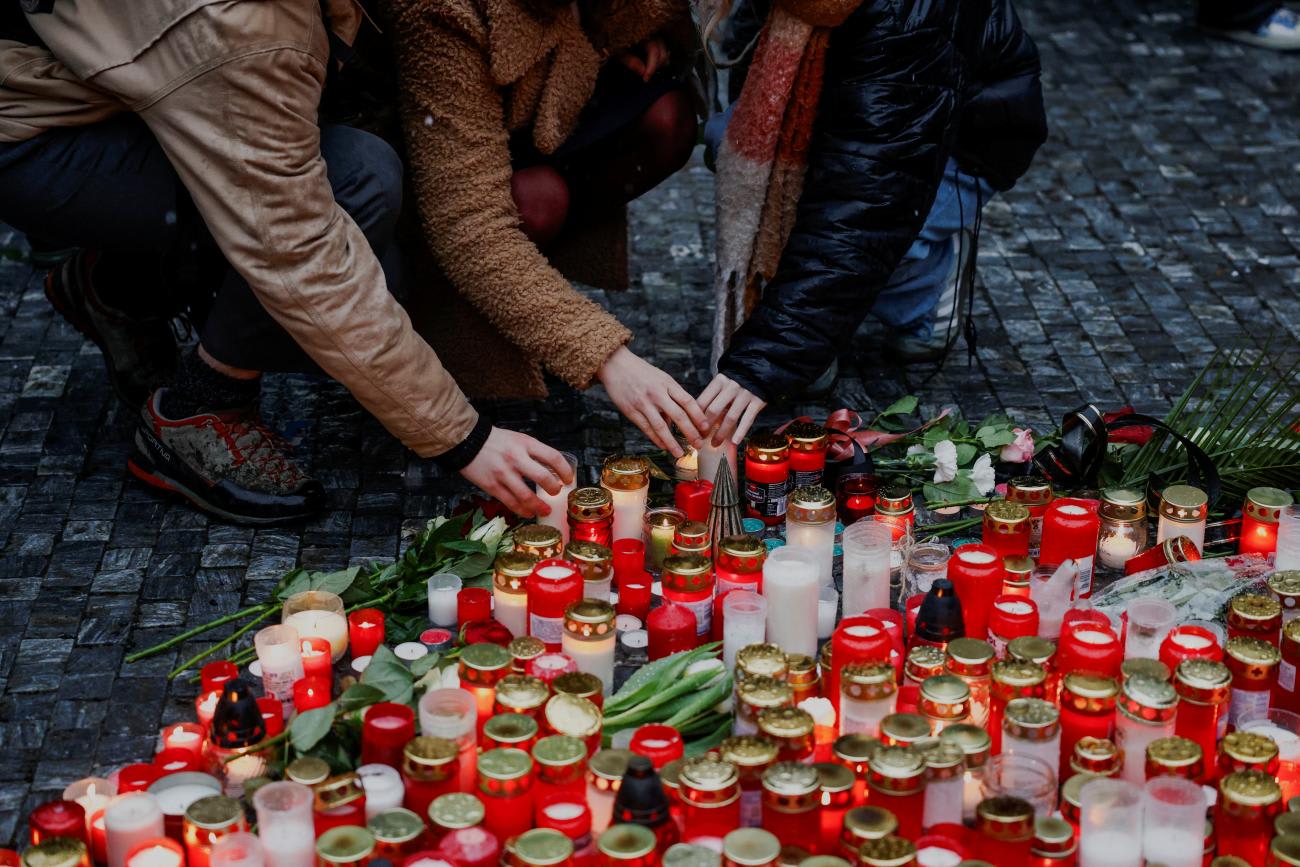
However, that is not to say that legislation does not have the potential to significantly reduce the occurrence of gun violence. In 1996, a gunman in Dunblane opened fire at a British primary school, killing 16 children. As a result of the efforts led by mothers in Dunblane and public outcry, a nearly complete ban on handguns was put in place. Since the Dunblane shooting, the United Kingdom has not experienced any other mass shootings. Nevertheless, echoing the assertions made by the Czech interior minister, even though the United Kingdom has some of the strictest gun laws in the world, gun violence has not been completely eradicated, with "6,645 offences involving firearms in the year ending June 2023, a 13 percent increase compared with the year ending June 2022" reported.
The mass shootings in Serbia and Germany last spring underscore the escalating European challenges associated with gun violence. The tension between preserving individual rights and addressing the broader societal implications of widespread gun ownership is a rapidly growing concern. The tragedy in Prague is a difficult, poignant reminder that the debate on gun control is not confined to a specific geographic location but instead a conversation that transcends borders. Calls for change across the world reflect an acknowledgment that although guns may be deeply ingrained in some cultural identities, a nuanced and balanced approach to gun ownership is needed.
As the Czech Republic mourns and grapples with the aftermath of the shooting, the debate on gun control and the balance between individual rights and public safety will continue. The discussions are difficult and can deepen wounds, but they can pave the way for improved dialogue and understanding, taking a step toward reducing gun violence.
